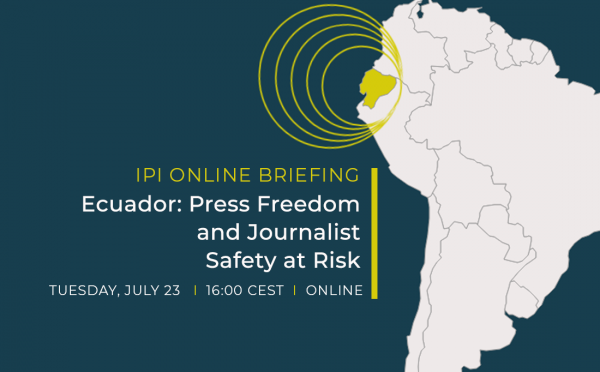Read this article in Spanish
A well-known Honduran radio journalist kidnapped on his way to work last week was found dead late last night in a housing development outside Tegucigalpa, news reports said, bringing the number of journalists killed in the violence-ridden Central American country this year to four.
The body of Ángel Alfredo Villatoro Rivera was found dressed in a police uniform no longer used by the police and dumped near a row of empty lots in the Las Uvas subdivision southeast of the capital. The journalist’s face was covered with a red handkerchief and he appeared to have been killed by two gunshots to the head, Honduras media reported.
Nearby residents alerted police after hearing several shots ring out around 19:00 Tuesday evening. Investigators several hours later confirmed that the male body found at the scene belonged to Villatoro, a popular morning host at HRN radio whose abduction last week had been closely followed by the Honduran public.
The tragic discovery came just hours after Honduran President Porfirio Lobo announced at a press conference that Villatoro was still alive, citing video evidence that had been sent to the journalist’s family. The president, who later admitted that his statement was based on days-old information, denied suggestions that his comments played a role in Villatoro’s death.
“I would never do anything to harm Alredo Villatoro,” he said, adding: “These are difficult moments, [but] we cannot give in, we must forge ahead and we must triumph.”
It remains unclear, based on varying accounts in Honduran media, whether or to what extent Villatoro’s family was involved in negotiations with the kidnappers, whom police officials had identified as “young gang members.” Last Saturday, Villatoro’s wife, Karla Fonseca, made a radio plea to the kidnappers to free her husband in time for Mother’s Day, observed last Sunday.
La Tribuna reported today, citing unnamed police sources, that the perpetrators had approached family members with an offer to release Villatoro, presumably in exchange for ransom. The paper also noted that the family had never officially reported the May 9 kidnapping to the police for fear of jeaporadising the journalist’s life.
Announcing an emergency meeting of Honduras’s Security and Defense Council, the country’s security minister, Pompeyo Bonilla, spoke of an “obligation” to solve Villatoro’s murder. “We express our pain and sadness to the family, and we are committed… to discovering the whereabouts of those who have committed this vile act against the life of a good Honduran,” he said.
The president of the Honduran Journalists Union, Juan Ramón Mairena, urged the government to follow through on its commitments, saying, “As an organisation we ask that this [crime] not remain in impunity.” Mairena had told AFP several days earlier: “What we are seeing, which is of enormous concern, is that there is very little or no investigation into the deaths of journalists.”
In condeming Villatoro’s murder, International Press Institute (IPI) Executive Director Alison Bethel McKenzie echoed Mairena’s comments. “This tragic news is a reminder of the extreme danger facing journalists in Honduras, where the government has more often than not failed to bring those responsible for crimes against the media to justice,” she said, adding: “This inaction leaves enemies of the press with nothing to fear and is perpetuating an increasingly deadly cycle of violence.”
Bethel McKenzie continued: “We extend our deepest condolences to the family, friends, and colleagues of Ángel Alfredo Villatoro Rivera, and we urge investigators to determine to what extent Mr. Villatoro’s work as a journalist played a role in his kidnapping and murder.”
Villatoro’s murder comes just over a week after kidnapped journalist and gay-rights activist Erik Martinez Ávila was found strangled to death on a road in the outskirts of Tegucigalpa. Four journalists have now been killed in Honduras this year, equalling Mexico and trailing only Nigeria, Somalia, and Syria in terms of media deaths in 2012.
According to IPI’s Death Watch, 23 journalists have been killed in Honduras since the end of June 2009, when former president Manuel Zelaya was removed from power in what the Organisation of American States called a coup d’état. By comparison, five journalists were killed in Honduras between 1997 and June 2009.
The surge in media-related crime has occurred in the context of sharply rising generalised violence: according to a 2011 United Nations study, Honduras now has the world’s highest official murder rate, at 86 homicides per 100,000 residents. In 2008, that number stood at 59.7, according to the Autonomous University of Honduras’s Violence Observatory.
Despite these statistics, IPI is concerned that journalists in Honduras are being targeted because of their political views. The lengthening list of those killed in the past three years includes a number, including Martinez Ávila, who were known for their outspoken criticism of the current government or their support for deposed president Zelaya.


